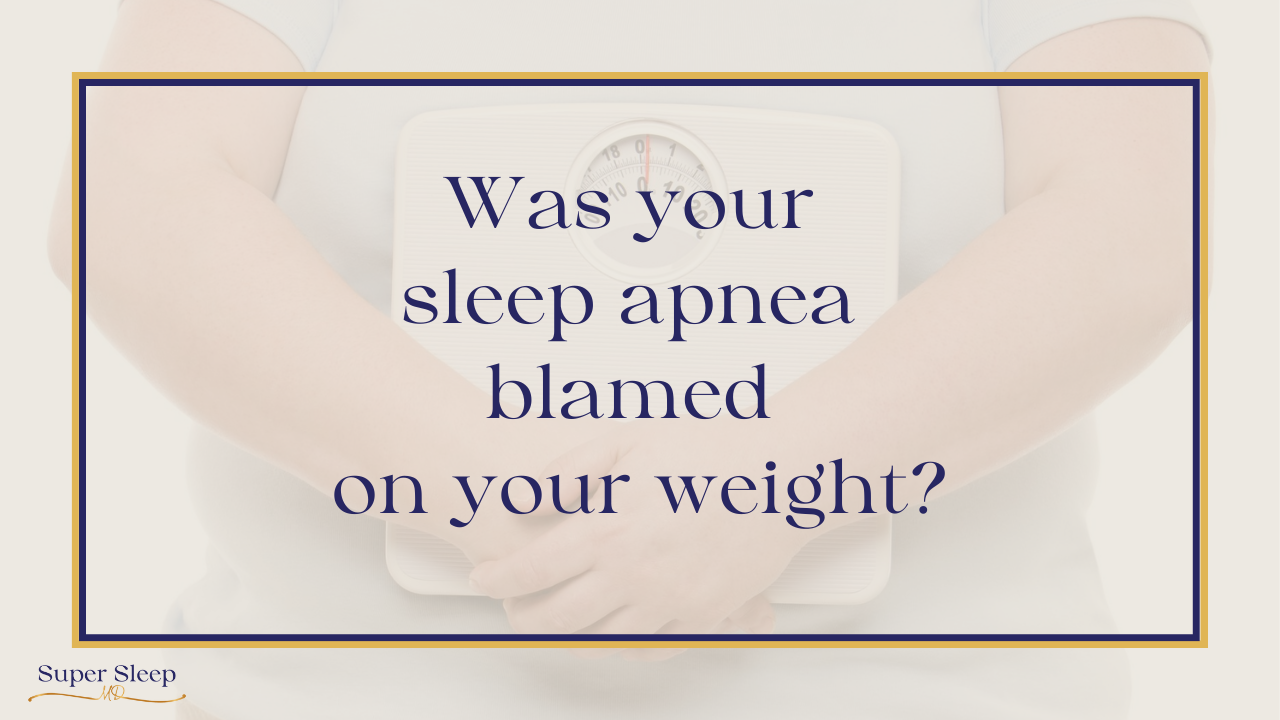74: Was your sleep apnea blamed on your weight?
Sep 02, 2023
Obstructive sleep apnea (OSA) and obesity often go hand in hand, co-existing within the same person. Weight gain often causes sleep apnea to get worse. The reverse is also true-- untreated sleep apnea can lead to weight gain.
It's tempting to view obesity as the sole cause of sleep apnea, believing that weight loss would be a guaranteed cure. However, this oversimplified perspective does not acknowledge the intricacies of either medical condition. And, more significantly, it perpetuates external and internal weight bias among people with obesity.
Here I will describe 3 common situations in which this limited perspective becomes problematic, especially among healthcare professionals caring for people with sleep apnea.
Situation 1: For a person who clearly struggles with obesity, a sleep apnea diagnosis is often solely attributed to their weight. This one-sided focus can lead to feelings of shame and stigmatization, as sleep apnea is added to the pile of conditions that are subtly (or not so subtly) communicated to be a direct result of their obesity. This bias also occurs with other conditions, such as high blood pressure, joint pain, or problems with fertility. Attributing all health concerns to the individual's weight without considering other potential underlying factors creates delays in care and depletes the patient of trust and hope. If you are someone who struggles with your weight, this is detrimental to your mental health. It can even affect your willingness to get proper treatment for the condition of obesity.
Situation 2: A person is overweight or has borderline obesity, diagnosed with sleep apnea. Even individuals who fall into this category may face bias when their weight is blamed for their sleep apnea. Such assumptions fail to acknowledge other potential causes of sleep apnea and can hinder a comprehensive evaluation. This affects treatment options. And it may contribute to the beginnings of weight bias internalization, which is known to contribute to weight gain.
Situation 3: A person has a weight in the normal range with sleep apnea symptoms. This individual may be inappropriately reassured by their healthcare provider, friends, and family. A delayed diagnosis can occur when sleep apnea is wrongly perceived as exclusively affecting overweight or obese individuals. This misconception can prevent timely intervention, as the possibility of sleep apnea is overlooked in individuals who do not fit the stereotypical profile. In fact, people with normal weight can be perceived as more healthy overall.
The reality is that sleep apnea is a multifactorial condition with a wide range of causes– and likely more than one contributes to the condition in any given person. While obesity is a significant risk factor, other contributing factors include anatomical abnormalities, age-related changes in muscle tone and tissue, family history, smoking, alcohol use, nasal congestion, and certain medical conditions. Sleep apnea is a complex interplay of various factors, and addressing it requires a holistic approach that goes beyond weight management alone.
By challenging obesity bias and embracing a comprehensive approach to diagnosis and treatment, we can provide better support for individuals with sleep apnea, regardless of their weight. Let's foster a more inclusive and informed perspective on this prevalent sleep disorder.
I also have a free guide for you or to share with someone you know called "If I lose weight, can I kick my CPAP out of bed".
>>> Click here to get the guide <<<
You've got sleep problems...
so is it time for a sleep study?

